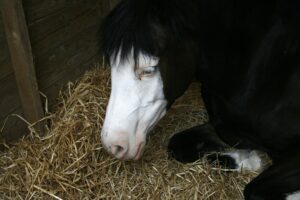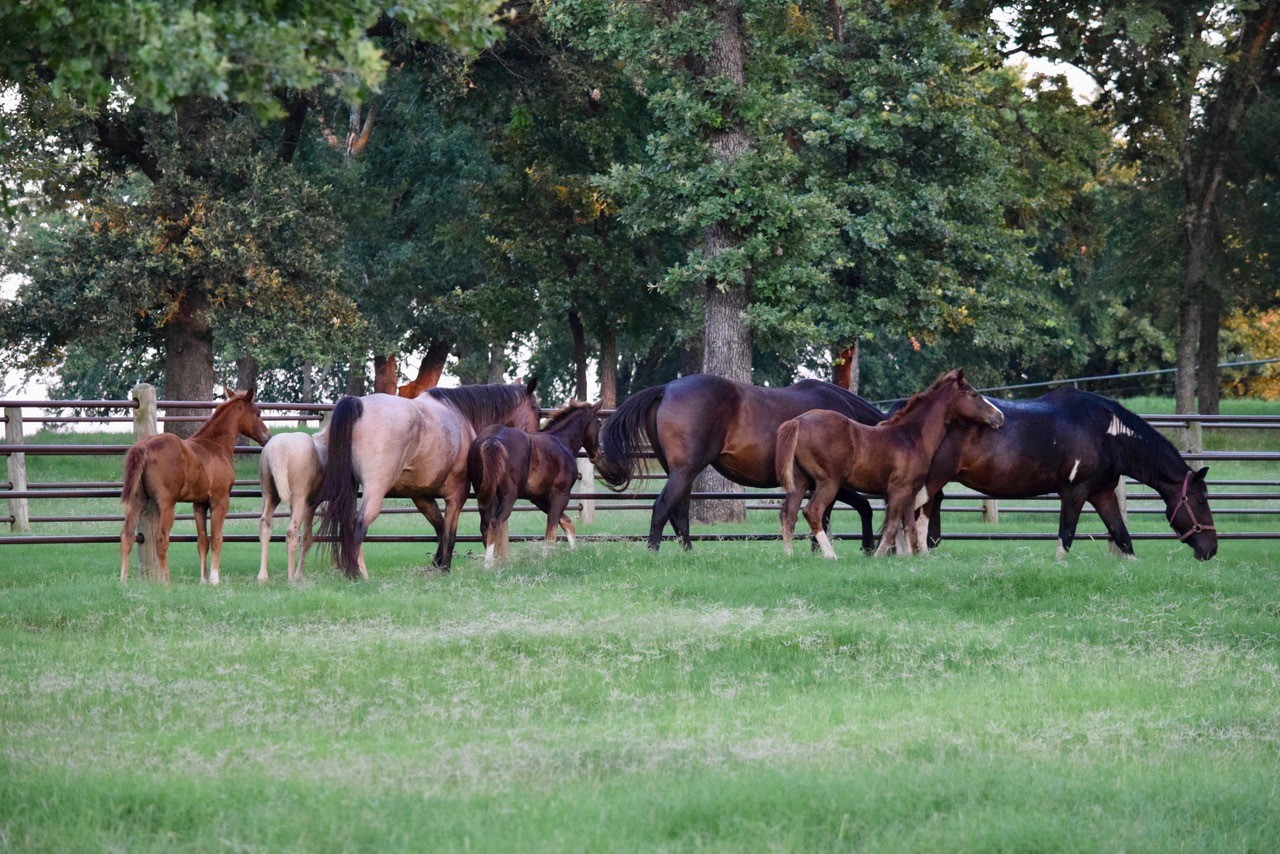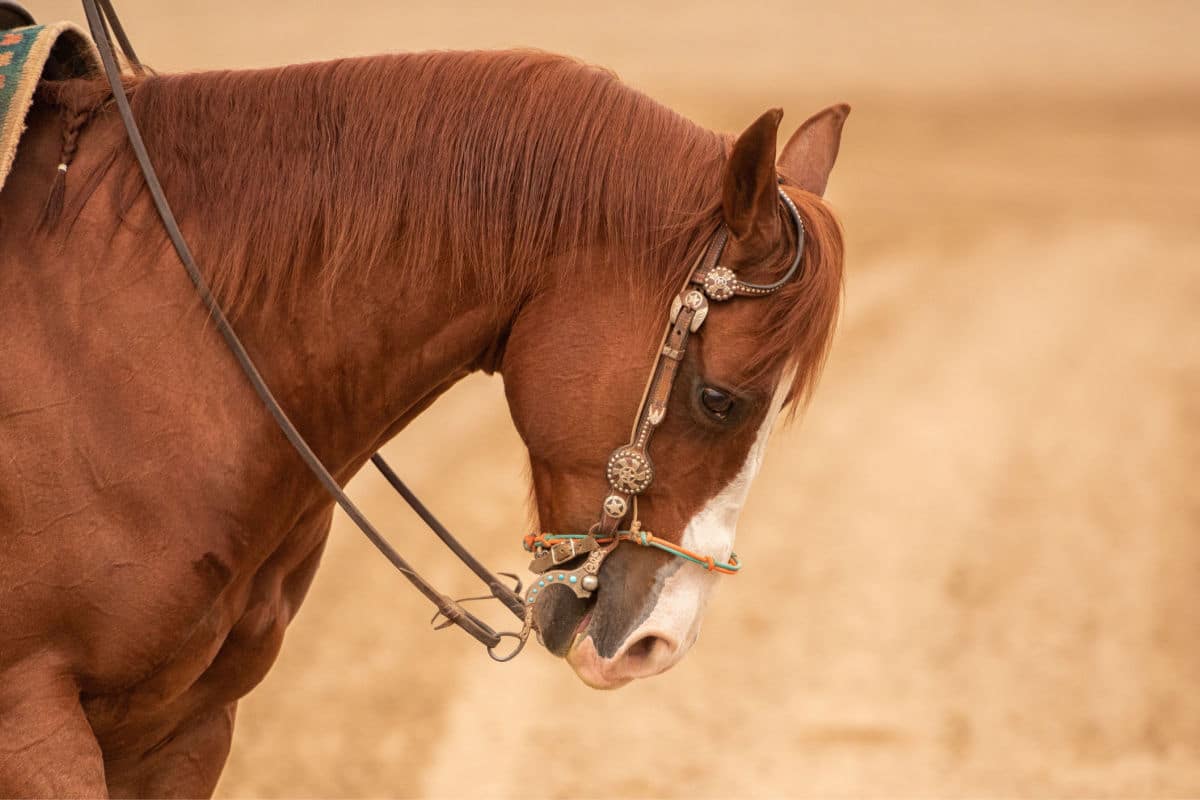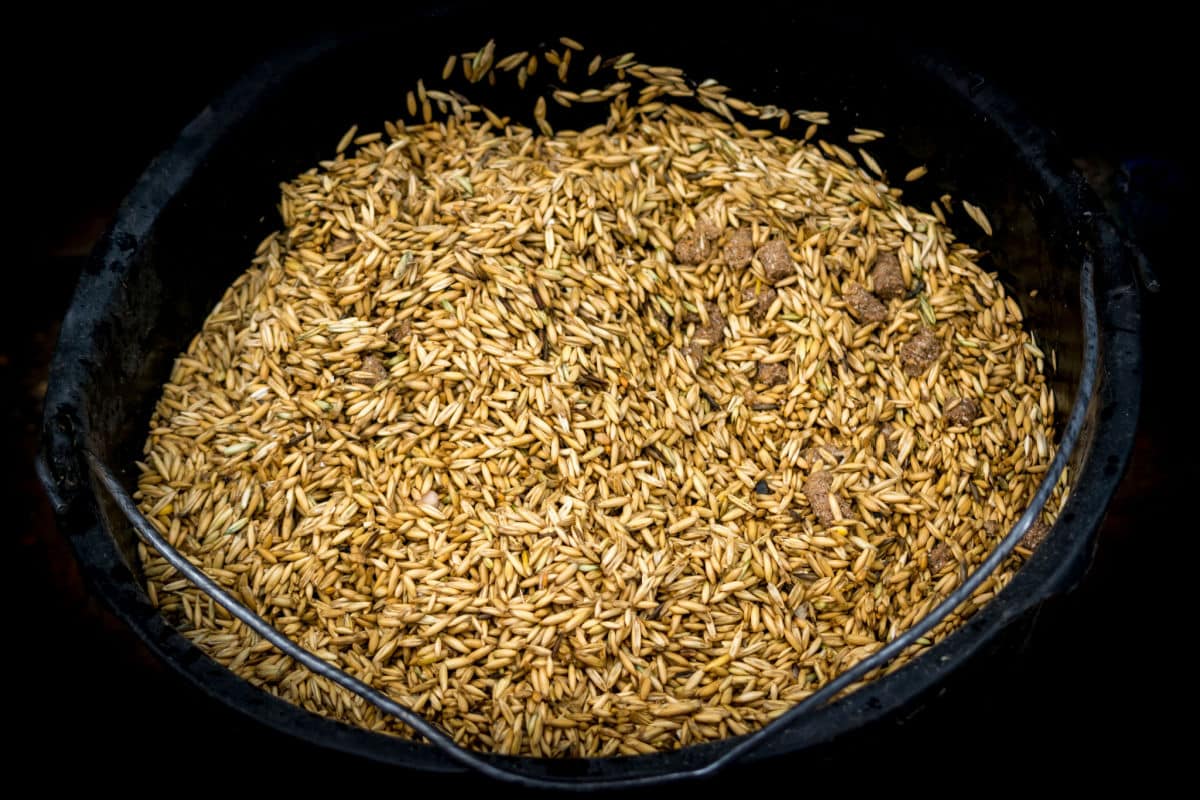
Leaving a horse without fresh, clean water or overfeeding grain are practices with high risk for causing
colic. On this, horse men and women agree. But when it comes to trailering, competing, keeping horses stalled, activity level and other possible colic risk factors – they also tend to agree that “every horse different.”
It’s true: some horses are more
prone to colic when the weather changes, or when they are first introduced to spring grass, or when you haul them off to a show. Some horses may struggle with mild colic episodes several times a year, while others never have a gut sound out of place in their whole lives.
But it’s a myth that “every horse is different” in the situations that may cause them to colic. Every horse is working with the same sensitive gastrointestinal tract and digestive function prone to the same issues for all the same reasons.
Here’s a quick tutorial on colic. This includes some common risk factors for colic that have the potential to affect any horse, why horses may be affected differently, and the importance of being aware so you can minimize this risk.
Colic Risk Factors Common to All Horses
There are some causes of colic that are either unavoidable, like cancer, or clearly related to health conditions, like an enterolith or strangulating lipoma.
But the majority of colic cases – over 80% – are considered idiopathic (that is, with no known cause). Research and experience both show that poor gi tract health, and the management practices that are hard on gi tract health, are major contributing factors.
It’s critical to understand that these practices have a cumulative effect on the equine gut. The impact of continuing to feed grain, restrict turnout, travel, and more over time is that the risk for poor gi tract health and colic increases. Just like a smoker is more likely to develop lung cancer, a horse kept in even one of these ways is at a higher risk for colic.
Here are some of these common practices and how they may impact equine digestive health and ultimately increase the risk of colic.
Feeding Grain
Over time, grain-based feeds – especially more than 5 pounds per meal – can be an overload of starch for the equine digestive tract. Undigested grain reaching the hindgut interferes with its microbial balance, producing lactic acid instead of beneficial volatile fatty acids. If left unmitigated, simply feeding grain meals can eventually lead to a cascade of issues starting with
digestive balance and including hindgut acidosis, colonic ulcers, and yes – colic.
Research supports a correlated risk between grain-based feed in the diet and colic.
Changing Grain
Switching feeds, from one type to another, from one supplier to another, or adjusting amounts, can also alter the microbial population of the hindgut. If done too quickly, this is known to lead to colic. Any adjustment to grain-based meals needs to be made gradually over a period of weeks to avoid disrupting the hindgut and causing colic.
Changing Hay
While most equestrians are aware of the risk of changing grain feed too quickly, the impact of changing hay tends to slip under the radar. Hay of different grass mixes, different suppliers, different fields, or different cuttings has differing nutritional content – and again affects the microbial balance of the hindgut. Changes in hay also need to be made gradually over time to ensure gi tract health.
Keeping Horses in Stalls
Reduced gut motility (the surging action that moves food through the GI tract) is associated with decreased motion in horses – which increases the risk for impaction colic. Being stalled can also be a stressor for some horses, which impacts their eating and drinking behaviors and consequently their gut function. Over time, a horse kept stalled for longer than a few hours each day could be at risk. Colic is a serious concern, too, if a horse’s turnout is suddenly restricted, such as when put on stall rest for an injury.
Trailering
While there’s nothing inherently unhealthy about putting a horse in a trailer and driving down the road, it is known to increase colic risk. Typically, this is because a horse isn’t drinking enough, risking impaction, or eating enough, interfering with healthy hindgut function. Also, while the specifics of why aren’t clear, stress is a known link for decreased immunity as well as colic risk.
Competing (or Any New Environment)
Taking horses to shows or races or new environments of any kind is also one practice that induces colic in some horses. As with trailering, this is likely a result of stress (which can depress the immune system) and changing eating and drinking patterns.
Weather
Many equestrians have noted that their horses are prone to colic with sudden changes in weather. While the weather itself isn’t the culprit, the horse’s response to sudden fluctuations may be. Eating, drinking, and moving less as a result – and our tendency to feed more concentrates when it suddenly gets cold – are influencers for colic.
Eating Too Close to Exercise
Waiting half an hour to ride after a grain meal, and cooling down thoroughly before feeding grain, are Horse Care 101 for most equestrians. But did you know that the same rules apply for hay? The issue is that increased activity level redirects blood flow to the muscles – the part of the body that is currently working the hardest. This means that there is less blood flow to the digestive tract, which can reduce gut motility and function.
These are a few practices that you need to recognize may lead to colic in any horse. Do keep in mind that there are lots of other risk factors as well, including introduction to new spring grass, feeding in sandy areas, and more.
Why Some Horses Colic and Others Don’t
While the same practices and situations do have the ability to cause a horse to colic, not all horses will show signs of colic under these conditions every time. There aren’t necessarily clear-cut reasons why horses are affected differently, but there are certainly some common-sense conclusions we can draw.
Some horses are simply hardier than others and their digestive systems less sensitive. They can go from turnout on a dry lot to a full day on a new pasture with no trouble whatsoever. Others have to be built up slowly in half hour increments over a period of weeks. Some can handle a new shipment of hay with no trouble, while some may experience mild gas colic as a result.
In cases like weather changes, traveling, and new environments, a horse’s personality plays a major role. A high-strung horse that is easily stressed is more likely to stop eating and drinking, possibly leading to colic. A picky horse may not like the water and doesn’t drink enough. The increased activity and energy needed in a show environment may impact gut motility.
Every Horse Isn’t That Different
While horses’ physical sensitivities, personalities, and responses do vary and impact whether or not a particular stressor will lead to colic – the fact remains that the potential is always there for any horse. For that reason, it’s important to know what risk factors may lead to colic and always err on the side of caution.
It’s better to play it safe and take the
necessary steps to avoid colic, than find out the hard way to what a particular horse is susceptible.
Flickr Photo Credit:
elrenia_greenleaf
 Leaving a horse without fresh, clean water or overfeeding grain are practices with high risk for causing colic. On this, horse men and women agree. But when it comes to trailering, competing, keeping horses stalled, activity level and other possible colic risk factors – they also tend to agree that “every horse different.”
It’s true: some horses are more prone to colic when the weather changes, or when they are first introduced to spring grass, or when you haul them off to a show. Some horses may struggle with mild colic episodes several times a year, while others never have a gut sound out of place in their whole lives.
But it’s a myth that “every horse is different” in the situations that may cause them to colic. Every horse is working with the same sensitive gastrointestinal tract and digestive function prone to the same issues for all the same reasons.
Here’s a quick tutorial on colic. This includes some common risk factors for colic that have the potential to affect any horse, why horses may be affected differently, and the importance of being aware so you can minimize this risk.
Leaving a horse without fresh, clean water or overfeeding grain are practices with high risk for causing colic. On this, horse men and women agree. But when it comes to trailering, competing, keeping horses stalled, activity level and other possible colic risk factors – they also tend to agree that “every horse different.”
It’s true: some horses are more prone to colic when the weather changes, or when they are first introduced to spring grass, or when you haul them off to a show. Some horses may struggle with mild colic episodes several times a year, while others never have a gut sound out of place in their whole lives.
But it’s a myth that “every horse is different” in the situations that may cause them to colic. Every horse is working with the same sensitive gastrointestinal tract and digestive function prone to the same issues for all the same reasons.
Here’s a quick tutorial on colic. This includes some common risk factors for colic that have the potential to affect any horse, why horses may be affected differently, and the importance of being aware so you can minimize this risk.



